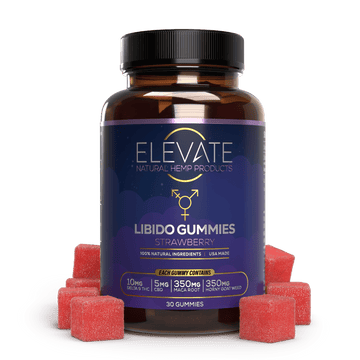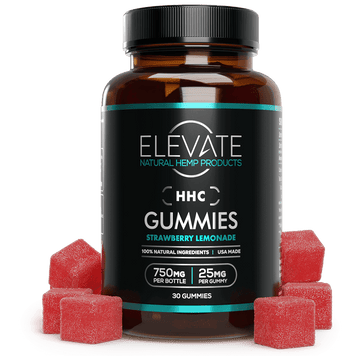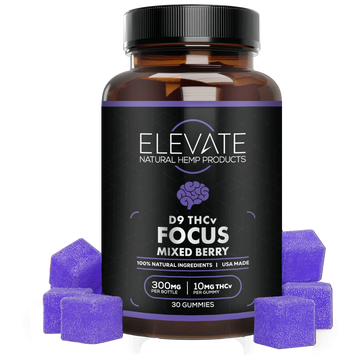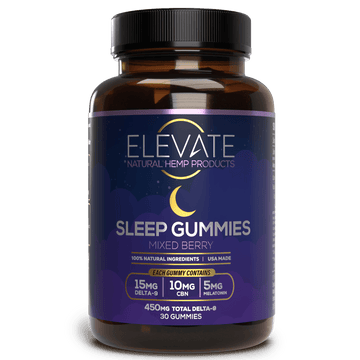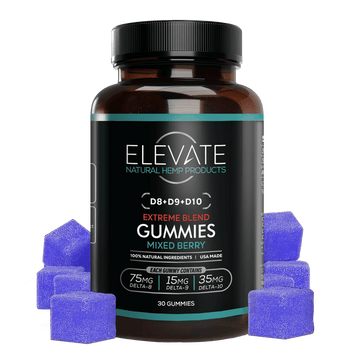THCP vs THC: Why THCP Feels 33x Stronger (Dosing, Effects & Risks)

THCP is structurally similar to THC but binds far more strongly to cannabinoid receptors, which can make its effects feel significantly more intense at much lower doses.
Table of Contents
- What Is THCP?
- Potential Benefits of THCP
- What Is THC?
- Potential Benefits of THC
- THCP vs THC: Which Is Right for You?
- Anti-Inflammatory
- THCP vs THC: The Differences
- How Long Does THCP and THC Stay in Your System?
- Factors Influencing Detection:
- Safety, Risks, and Dosage
- Product Information and Comparisons
- Final Thoughts on THCP vs THC
- FAQs
- Key Takeaways
- Related Articles
Just when you think you know the cannabis family, a new relative shows up and changes the conversation. You’re likely familiar with THC, the famous compound known for its classic effects. But now, its potent cousin, THCP, is gaining attention, and for good reason. It’s reported to be significantly stronger, offering a much more intense experience. This guide is designed to clear up the confusion around the THCP vs THC debate. We'll break down the key differences so you can understand exactly what sets them apart and make an informed choice for your wellness routine.
This blog will explore the differences between THCP and THC, focusing on their potency, effects, and what this means for users. We’ll sift through the research to provide a clear understanding of how THCP stands out and what potential it holds for enhancing the cannabis experience. Join us as we delve into the exciting dynamics between these two cannabinoids.
What Is THCP?
Tetrahydrocannabiphorol (THCP) is a rare cannabinoid found in cannabis and hemp. First isolated in 2019, it differs chemically by having a longer seven‑carbon alkyl side chain, which allows it to bind to CB1 receptors up to 30–33× more strongly than THC
Initial research suggests that THCP can bind to the CB1 and CB2 receptors in the human body more effectively than THC, potentially making it significantly more potent cannabinoid and impacting its psychoactive and therapeutic effects. This enhanced binding affinity is what might make THCP a particularly powerful cannabinoid in terms of its physiological effects.
Origin and Production
While THCP is a naturally occurring compound in cannabis plants, you won't find much of it. It exists in such tiny quantities that extracting it directly from the plant isn't practical for creating products. To make THCP accessible, it's typically created in a lab. Scientists have developed a process to synthesize this cannabinoid, often by chemically altering more abundant compounds like CBD derived from hemp. This method allows for the production of larger, more consistent quantities, making it possible for companies to include this potent compound in their products. This lab-based approach is essential for meeting the growing curiosity and demand from consumers who want to experience THCP's unique effects.
Potential Benefits of THCP
THCP is thought to have several potential health benefits that could enhance its appeal as a therapeutic compound. Here are some potential health benefits associated with THCP:
Enhanced Potency
Due to its stronger affinity for CB1 receptors, THCP might offer more pronounced effects than THC in pain relief, making it potentially beneficial for managing chronic pain conditions.
Neuroprotective Properties
Like THC, THCP is believed to have neuroprotective properties, which could be useful in treating neurodegenerative diseases by protecting brain cells from damage.
Anti-inflammatory Effects
THCP may also share THC’s anti-inflammatory properties, potentially aiding in the reduction of inflammation and helping with conditions such as arthritis and Crohn's disease.
Appetite Stimulation
THCP could help stimulate appetite more effectively than THC, which could be beneficial for individuals suffering from appetite loss due to illness or medical treatment.
Anxiety and Depression
If THCP proves to have similar effects to THC in mood regulation, it could be used to help alleviate symptoms of anxiety and depression, although its stronger effects might require careful dosing to avoid exacerbating these conditions.
Sleep Aid
The sedative effects of THCP could make it a potent sleep aid, helping individuals with insomnia or sleep disturbances.
What Is THC?
THC, or tetrahydrocannabinol, is the primary psychoactive compound found in cannabis plants. It is known for producing the "high" associated with marijuana use. THC works by binding to cannabinoid receptors in the brain and nervous system, affecting mood, perception, cognition, and motor function.
This compound also has various medical benefits, including pain relief, nausea reduction, and appetite stimulation. THC has been used therapeutically to treat conditions such as chronic pain, glaucoma, insomnia, and muscle spasticity. Despite its psychoactive effects, THC continues to be a focus of both medical and recreational use.
Potential Benefits of THC
THC, or tetrahydrocannabinol, is known for its psychoactive properties, but it also offers several potential health benefits that have been explored in medical research:
Pain Relief
THC is widely recognized for its effectiveness in reducing chronic pain. It alters pain perception pathways in the brain, helping to alleviate discomfort from conditions such as neuropathy, arthritis, and fibromyalgia.
Anti-Nausea
THC has proven effective in reducing nausea and vomiting, especially in patients undergoing chemotherapy. Medications containing THC have been approved for this purpose.
Appetite Stimulation
THC is known to increase appetite, which is beneficial for individuals experiencing weight loss due to illnesses such as HIV/AIDS or cancer.
Mental Health Management
THC has been used to help manage symptoms of mental health conditions like depression and PTSD by modulating mood and providing a sense of relaxation and well-being.
Neuroprotective Properties
Some studies suggest that THC has neuroprotective properties, which means it could help slow the progression of neurological conditions such as Alzheimer's disease and multiple sclerosis.
Glaucoma
THC can help reduce intraocular pressure, providing temporary relief for individuals with glaucoma.
THCP vs THC: Which Is Right for You?
Choosing between THCP vs THC depends on your experience, comfort level, and what you want to feel. Both are cannabinoids found in cannabis, but they work differently in your body. THCP is known to be stronger than THC, meaning its effects may last longer and feel more intense. For some, that’s exciting. For others, it might be overwhelming.
If you’re new to cannabis, starting with THC is usually safer. It’s well-researched, easier to find, and legal in more places. THCP, on the other hand, is newer and often sits in a legal gray area. Check your local laws before buying or using any THCP products.
Your body chemistry and tolerance also play a big role. Some people find THCP provides deeper relaxation or more noticeable euphoria, while others prefer the familiar balance of THC. Always start low and go slow, especially with THCP.
In the end, the right choice in THCP vs THC comes down to personal preference. Think about your tolerance, desired effects, and what’s legal where you live. Both can offer unique benefits — it’s about finding what feels best for you, safely and responsibly.
Anti-Inflammatory
THC has anti-inflammatory capabilities, which can benefit those suffering from inflammatory conditions like Crohn's disease and rheumatoid arthritis.
THCP vs THC: The Differences
When comparing THCP and THC, several key differences stand out, primarily based on their chemical structure, potency, effects, and potential therapeutic applications. Here’s a detailed look at how THCP differs from THC:
Chemical Structure
At a glance, THC and THCP look almost identical, but the key difference lies in their molecular makeup. Think of it like two keys that are nearly the same, but one has a slightly longer blade. THC has a five-carbon alkyl side chain, which is a standard length for many cannabinoids. THCP, however, features a longer seven-carbon alkyl side chain. This seemingly small difference is a game-changer. According to the researchers who first isolated it, this longer chain allows THCP to bind to the body's CB1 receptors up to 33 times more effectively than THC. This enhanced binding affinity is the primary reason for THCP's significantly higher potency.
Psychoactive Effects and User Experience
Because THCP binds so well to our cannabinoid receptors, its psychoactive effects are reported to be much more intense than those of traditional THC. While many people enjoy the familiar euphoria, relaxation, and altered perception that come with THC products like Delta 9 gummies, THCP offers a more profound and powerful experience. Users often describe the high as being more psychedelic and deeply immersive. For this reason, THCP is generally recommended for experienced cannabis users who are looking for a stronger effect. If you're new to cannabinoids, starting with a more well-understood compound is a safer bet before exploring the potent effects of THCP.
Duration of Effects
Another major difference to consider is how long the effects last. A typical THC high can last for a few hours, depending on the dose and consumption method. THCP, on the other hand, has a much longer-lasting impact. Some reports suggest its effects can linger for anywhere from 12 to 24 hours. This extended duration means you need to plan accordingly. An experience that lasts a full day is a significant commitment, so it’s crucial to be in a comfortable, safe environment and to clear your schedule. This is very different from products designed for specific, shorter-term needs, like gummies formulated to help you sleep.
Tolerance
When you use any cannabinoid regularly, your body can build a tolerance, meaning you need more to feel the same effects. With THCP's high potency, it's possible that tolerance could build more quickly than with THC. While its strength is appealing, it might not be the best choice for everyone, especially for those seeking consistent, long-term relief or relaxation. For some, the reliable and milder effects of other cannabinoids might offer more sustainable satisfaction. It's important to consider your personal goals and usage habits when deciding if THCP is right for you, or if you'd prefer to explore other options.
How Long Does THCP and THC Stay in Your System?

The duration that THCP and THC remain detectable in your system can vary widely, influenced by several factors including the frequency of use, dosage, metabolism, and the type of test used. Here's a breakdown of how long each cannabinoid typically stays detectable:
THC:
Blood: THC can be detected in the blood for up to 36 hours after use. However, in regular users, it might be detectable for several days.
Urine: In urine, THC is detectable for up to 3 days after occasional use. For frequent users, THC can be detected for up to 30 days or more.
Saliva: In saliva, THC may remain detectable from 1 to 3 days after the last use.
Hair: Hair follicle tests can detect THC for up to 90 days after use, reflecting consumption over a longer period.
THCP:
The detection windows for THCP are less well-defined due to its relatively recent discovery and limited research on its metabolism and excretion. However, given THCP's structural and pharmacological similarities to THC, it might be assumed that:
Blood: Like THC, THCP could remain in the blood for a few days, especially in regular users.
Urine: Assuming a similar metabolic pathway to THC, THCP might also be detectable in urine for days to weeks, depending on usage patterns.
Saliva: The detection window in saliva could be similar to THC, ranging from a few hours to a few days.
Hair: Hair tests, which capture longer usage histories, might detect THCP for up to 90 days, similar to THC.
Detection on Drug Tests
Here's the bottom line when it comes to drug tests: you should assume that both THCP and THC will cause you to fail. Standard drug screenings aren't sophisticated enough to distinguish between different types of cannabinoids like Delta-9 THC and THCP. Instead, they test for the presence of THC metabolites, which your body produces after consumption. Since THCP is structurally very similar to THC, it's highly likely to be metabolized in a way that triggers a positive result on these tests. This is a critical point to understand, especially with the variety of hemp-derived cannabis products available. If you have a drug test coming up, the most reliable advice is to avoid using any of them altogether to ensure you don't run into any issues.
Factors Influencing Detection:
The duration for which cannabinoids like THC and THCP remain detectable in your system can be influenced by several key factors. These factors affect how quickly these substances are metabolized and eliminated from the body. Understanding these variables is crucial for anticipating how long these compounds might show up in various types of drug tests. Here’s a closer look at the primary factors that influence cannabinoid detection times:
Frequency of Use: More frequent use can lead to longer detection times because repeated exposure can cause the substance to accumulate in the body.
Dosage: Higher doses of THC or THCP are more likely to extend the duration they can be detected, as larger amounts take longer for the body to break down and eliminate.
Metabolism: Individuals with faster metabolisms tend to clear cannabinoids from their systems quicker. Metabolic rate is influenced by factors such as age, genetics, activity level, and overall health.
Body Fat: THC and THCP are lipophilic, meaning they are stored in fat cells. Individuals with higher body fat percentages may retain cannabinoids longer, affecting how long these substances can be detected.
Legal Status
THCP exists in a legal gray area. Because it is a newly discovered and highly psychoactive cannabinoid, its legality depends on how local and federal laws interpret hemp-derived compounds. In some regions, THCP remains unregulated; in others, it may be treated as a controlled substance due to its potency and similarity to THC.
THC, on the other hand, is well-established as a controlled substance under federal law (except when derived from hemp in trace amounts under 0.3% Delta-9 THC). However, many states have legalized THC for medical or recreational use, resulting in a complex patchwork of regulations across the U.S.
Safety, Risks, and Dosage
Because THCP is so much more potent than traditional THC, approaching it with respect and caution is essential for a positive experience. Its powerful nature means that both the desired effects and potential side effects can be significantly amplified. Understanding how to dose correctly and what to look out for is key to safely exploring what this cannabinoid has to offer. Like any powerful compound, knowledge and responsible use are your best tools. Before trying THCP, it’s important to be aware of the potential side effects, proper dosing strategies, and the risks associated with the unregulated market to ensure your experience is both safe and enjoyable.
Potential Side Effects
The potential side effects of THCP are similar to those of THC, but they can be much more intense due to its higher potency. Taking too much can lead to uncomfortable experiences, so it's crucial to be mindful of your consumption. Common adverse effects include heightened anxiety or paranoia, which can be particularly unsettling for those new to potent cannabinoids. Other physical side effects might include dry mouth, red eyes, and an increased heart rate. While these are generally not dangerous for healthy individuals, they can be unpleasant. Starting with a minimal dose helps you gauge your tolerance and minimize the risk of these stronger, less desirable outcomes.
Dosage Recommendations
When it comes to THCP, the golden rule is to start low and go slow. Because it binds so effectively to your body's receptors, a little goes a long way. If you're new to THCP, begin with the smallest possible dose—think one milligram or even less—and wait at least a couple of hours to fully assess the effects before considering taking more. This cautious approach allows you to find your personal comfort level without accidentally overdoing it. Finding the right product and dose is crucial for achieving your desired outcome, whether you're looking for something to help you unwind or need a little extra support for a good night's rest. For example, many people carefully select specific THC products for sleep to ensure they get the right effect without any morning grogginess.
Risks of Unregulated Products
The cannabis market is flooded with products, and not all of them are created equal. One of the biggest risks with newer cannabinoids like THCP is the lack of regulation. Unregulated products may contain harmful contaminants like pesticides, heavy metals, or residual solvents left over from the extraction process. To protect yourself, it's vital to purchase from reputable brands that provide third-party lab test results, often called a Certificate of Analysis (COA). This documentation verifies the product's purity and potency, ensuring you're getting exactly what's on the label without any unwanted extras. Always prioritize brands that are transparent about their sourcing and manufacturing processes when you shop for products.
Mixing with Other Substances
It’s strongly advised to avoid mixing THCP with other substances, especially alcohol, prescription medications, or other drugs. Because THCP is so potent, combining it with other psychoactive compounds can lead to unpredictable and potentially negative interactions. Alcohol, for instance, can amplify feelings of dizziness and impair judgment, while mixing with other substances could intensify side effects like anxiety or a rapid heart rate. To ensure a safe experience, it's best to try THCP on its own, particularly when you are still learning how it affects you. This allows you to understand its unique effects without interference from other substances.
Product Information and Comparisons
As THCP gains popularity, it's appearing in a variety of product formats that cater to different preferences. You can typically find it in vape cartridges, disposable vapes, tinctures, and edibles like gummies. This variety allows you to choose a consumption method that best fits your lifestyle and desired experience, whether you prefer the fast-acting effects of inhalation or the long-lasting, precisely dosed nature of edibles. Understanding these product types and how THCP compares to other cannabinoids you might be familiar with is the best way to make an informed decision and find the right fit for your wellness routine.
Common Product Types
THCP is most commonly infused into products that are already popular in the cannabis market. Vape cartridges and disposables offer a quick onset, making it easier to control the intensity of the effects in near real-time. Edibles, particularly gummies, are another favorite because they provide a pre-measured, consistent dose in every piece, taking the guesswork out of consumption. You may also find THCP in concentrates for dabbing or as an additive in tinctures. The best product type for you depends on your personal preference for onset time, duration, and convenience. For many, the reliability of Delta 9 gummies makes them an ideal format for trying new cannabinoids.
Use in Blends
Due to its incredible potency, THCP is often used as a "booster" in product formulations rather than as the sole active cannabinoid. Manufacturers frequently blend a small amount of THCP with other cannabinoids like Delta-8 THC, Delta-9 THC, or HHC. This practice allows them to create a more powerful and nuanced experience without it being overwhelming. These carefully crafted blends can produce a unique entourage effect, where the different compounds work together to create a specific mood or benefit. For example, a blend might be designed to enhance focus or, like these libido-enhancing gummies, to target a very specific experience.
Comparison to Other Cannabinoids
To truly understand THCP, it helps to see how it measures up against other well-known cannabinoids. Its unique chemical structure gives it a potency that sets it apart from nearly everything else on the market. Whether you're familiar with the mellow effects of Delta-8 or the balanced high of HHC, knowing where THCP stands in terms of strength and experience can help you decide if it's something you want to explore. This comparison provides a clearer picture of what to expect and helps you choose cannabinoids that align with your tolerance and desired effects.
vs. Delta-8 THC
The difference in potency between THCP and Delta-8 THC is substantial. THCP is estimated to be up to 60 times stronger than Delta-8. While Delta-8 products are known for providing a milder, more relaxing, and clear-headed high with less anxiety, THCP is far more stimulating and intensely psychoactive. If you're seeking a gentle experience to take the edge off, Delta-8 is a reliable choice. THCP, on the other hand, is better suited for experienced users with a high tolerance who are looking for a powerful and profound effect.
vs. THCO
THCP and THCO are both known for their high potency, but they differ in key ways. THCP is a naturally occurring cannabinoid, whereas THCO is a synthetic compound created in a lab. This also affects their onset time; THCP's effects are felt almost immediately upon consumption (especially when vaped), while THCO has a delayed onset because it needs to be metabolized by the body first. In terms of strength, THCP is considered to be about 10 times more potent than THCO, making it one of the most powerful cannabinoids available.
vs. HHC
HHC (Hexahydrocannabinol) is often described as being very similar to traditional Delta-9 THC, though perhaps slightly milder in its effects. It offers a balanced, euphoric high that many find enjoyable and manageable. THCP, however, is significantly stronger than both HHC and Delta-9 THC. If you find that HHC gummies provide your ideal level of effect, then THCP will likely be far too intense. The potency of THCP places it in a category of its own, well above the more balanced experience that HHC provides.
When considering consumption methods, the THCA flower vs THC flower debate highlights important differences in effects and use.
For those interested in exploring similar compounds, the HHC vs THCA comparison offers valuable insights.
Final Thoughts on THCP vs THC
The exploration of THCP alongside the well-known THC opens up new frontiers in the understanding of cannabis compounds and its effects. While THC has long been celebrated for its extensive benefits and recreational use, THCP emerges as a potent new player with potential to revolutionize how we perceive cannabis potency and efficacy.
As research continues to unfold, both cannabinoids offer intriguing possibilities for medical and recreational users alike. It will be essential to further investigate THCP to fully harness its capabilities and understand its impacts, ensuring informed and safe usage within the ever-evolving cannabis industry.
FAQs
1. What is THCP and how does it differ from THC?
THCP, or tetrahydrocannabiphorol, is a cannabinoid naturally found in cannabis. Unlike THC, which produces standard psychoactive effects, THCP is significantly more potent and binds more strongly to CB1 receptors in the brain. This stronger binding results in a more intense high, even at lower doses, making it important to understand the difference when exploring cannabis products.
Comparing the Effects of THCP and THC
THCP produces effects similar to THC, including euphoria, relaxation, and altered perception. However, it is far more potent, so even small doses can feel intense. Users may experience stronger psychoactive sensations, heightened body effects, and more pronounced mental shifts. Because THCP is relatively new, research on its full effects is limited, and caution is recommended when trying it for the first time.
How Long Can You Expect THCP to Last?
The amount of time THCP stays in your system depends on factors such as dosage, frequency, metabolism, and method of consumption. Like THC, it can be detected in urine, blood, or saliva for several days to weeks. THCP’s stronger potency may result in slightly longer detection windows, but studies are limited, and results can vary widely between individuals.
The Big Question: Is THCP Really Stronger?
Yes, THCP is significantly stronger than THC. Studies suggest THCP binds to CB1 receptors up to 30 times more effectively than THC. This means smaller amounts of THCP can produce much more intense psychoactive effects. Users familiar with THC should be cautious when trying THCP, as the potency difference can lead to unexpected or overwhelming experiences if taken in the same amounts as standard THC.
Will THCP Give You a High?
Yes, THCP is psychoactive and can produce a high similar to THC, but more intense. Its strong binding affinity to CB1 receptors means even a small dose can result in significant effects, including euphoria, altered perception, and body relaxation. Beginners or those with lower THC tolerance should start with minimal amounts to gauge their response and avoid overpowering experiences.
Key Takeaways
- THCP's Potency is All About Its Structure: The main reason THCP feels so much stronger than THC is its longer carbon chain. This small difference allows it to bind more effectively to your body's cannabinoid receptors, resulting in a significantly more intense experience.
- Start Small and Clear Your Schedule: Due to its high potency, it's essential to begin with a very small dose of THCP and wait a few hours to gauge its effects. Its impact is not only more powerful but can also last much longer than THC, so plan accordingly.
- Treat THCP Like THC for Drug Tests: Standard drug screenings aren't designed to tell the difference between various cannabinoids. Since THCP is so similar to THC, it will almost certainly trigger a positive result, so it's best to avoid it entirely if you have a test coming up.
Related Articles
Join Our Newsletter
Sign up to be the first to know about our can't-miss product drops, special VIP offers & exclusive discounts.

